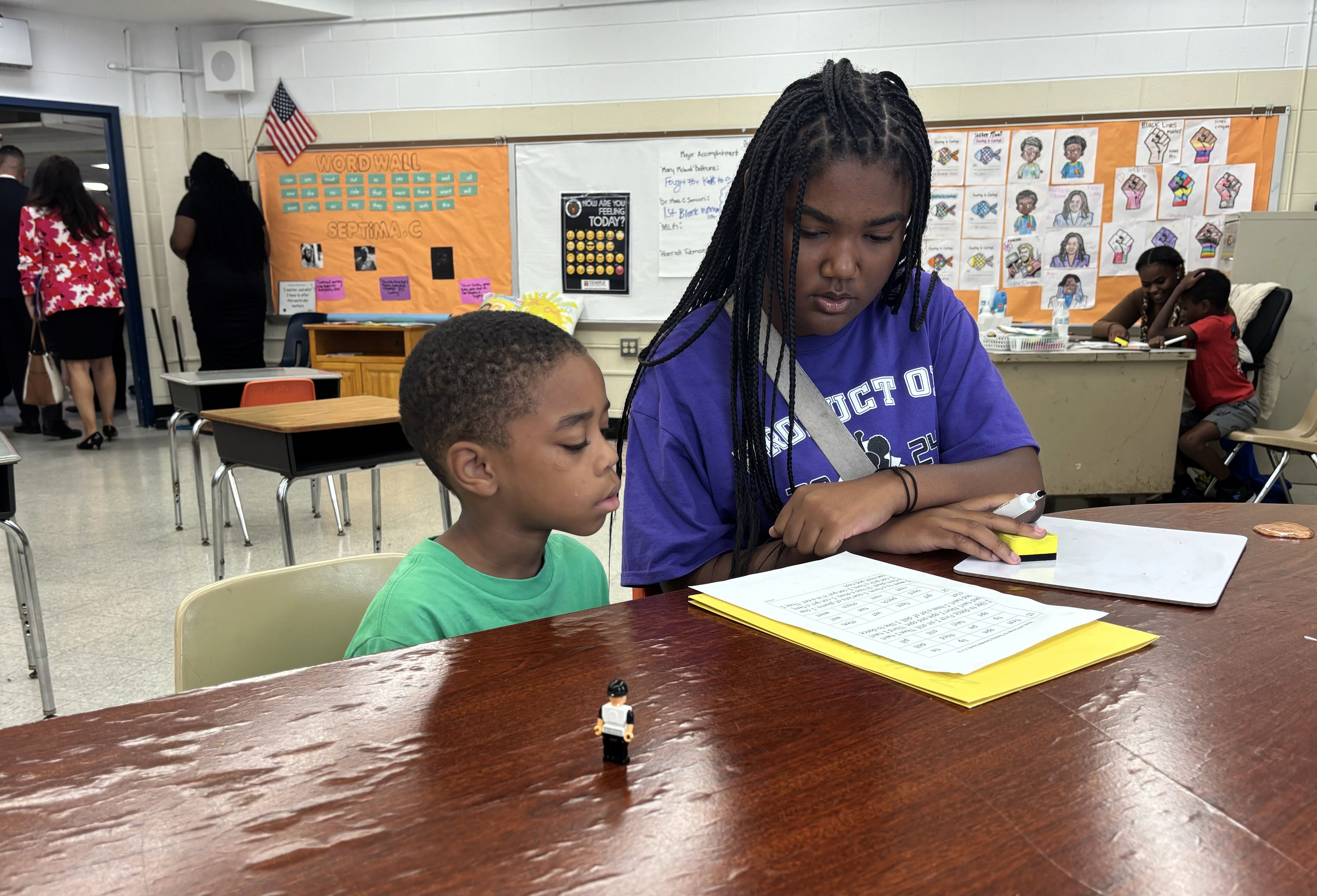
The Young Adult Literacy Labs Program Receives the 2025 Divergent Award

The Young Adult Literacy Labs program of the Connecticut Writing Project (CWP)–Fairfield has been honored with the prestigious 2025 Divergent Award for Excellence in the Implementation of Literacy in a Digital Age. This esteemed award is presented by the Initiative for Literacy in a Digital Age, which recognizes outstanding programs and initiatives that promote writing and digital literacy.
Emphasis on Sustainable Development Goals (SDGs)
The Young Adult Literacy Labs program at CWP–Fairfield aligns with several Sustainable Development Goals (SDGs) set by the United Nations. These goals include:
- Quality Education
- Reduced Inequalities
- Partnerships for the Goals
By focusing on collaboration, publication, and embracing the diverse demographics of southern Connecticut, the program contributes to achieving these SDGs.
About the Program
Dr. Bryan Ripley Crandall, associate professor of educational studies and teacher preparation in the School of Education and Human Development, serves as the director of CWP–Fairfield. The program offers various initiatives that emphasize the importance of literacy in a digital age. Students and teachers have the opportunity to showcase their work in an annual published anthology called POW!—Power of Words.
Dr. Crandall expressed his gratitude for the recognition, stating, “This award acknowledges the brilliance, creativity, hard work, and dedication of our teachers and young people. It celebrates the success of our writers and the exceptional educators who teach our programs.”
The Significance of the Divergent Award for Excellence
The Divergent Award for Excellence recognizes the crucial role of literacy in the digital landscape. It honors individuals who deviate from traditional pedagogies and research approaches, showcasing their contributions to the theoretical and practical study of 21st-century literacies.
According to Dr. Shelbie Witte, senior director of outreach and teacher education at Oklahoma State University and founding director of the Initiative for Literacy in a Digital Age, “We received a record number of nominees for the 2025 class. The educators, librarians, community organizers, K-12 educators, college and career leaders, and students recognized by this award are transformational difference-makers in the field of literacy.”
Upcoming Literacy in a Digital Age Lecture Series
The honorees will have the opportunity to share their work as part of the Literacy in a Digital Age lecture series in April 2025.
Leadership and Alumni
The literacy labs at CWP–Fairfield are currently led by Allison Fallon (Greenwich Public Schools), Tim Huminski (Easton-Redding Region 9), Stefania Vendrella (Greens Farm Academy), Abu Bility (Syracuse Academy of Science), and Dave Wooley (Stamford Public Schools). Additionally, Fairfield University alumni William King (Bridgeport Public Schools), Emily Diggs (Westport Public Schools), Jessica Baldizon (Bridgeport Public Schools), and Stefania Vendrella (Greens Farm Academy) play key roles in the program.
Continuing to Advance Writing Education
Through this recognition, CWP will continue to lead writing practices and programs under The National Writing Project, a collaborative network dedicated to advancing writing education.
SDGs, Targets, and Indicators
| SDGs | Targets | Indicators |
|---|---|---|
| SDG 4: Quality Education | 4.4 By 2030, substantially increase the number of youth and adults who have relevant skills, including technical and vocational skills, for employment, decent jobs, and entrepreneurship | Not mentioned in the article |
| SDG 5: Gender Equality | 5.5 Ensure women’s full and effective participation and equal opportunities for leadership at all levels of decision-making in political, economic, and public life | Not mentioned in the article |
| SDG 10: Reduced Inequalities | 10.2 By 2030, empower and promote the social, economic, and political inclusion of all, irrespective of age, sex, disability, race, ethnicity, origin, religion or economic or other status | Not mentioned in the article |
| SDG 16: Peace, Justice and Strong Institutions | 16.10 Ensure public access to information and protect fundamental freedoms, in accordance with national legislation and international agreements | Not mentioned in the article |
1. Which SDGs are addressed or connected to the issues highlighted in the article?
- SDG 4: Quality Education
- SDG 5: Gender Equality
- SDG 10: Reduced Inequalities
- SDG 16: Peace, Justice and Strong Institutions
The article discusses the Young Adult Literacy Labs program, which emphasizes collaboration, publication, and embracing the diverse demographics of southern Connecticut. These efforts align with the goals of quality education, gender equality, reduced inequalities, and promoting peace, justice, and strong institutions.
2. What specific targets under those SDGs can be identified based on the article’s content?
- Target 4.4: By 2030, substantially increase the number of youth and adults who have relevant skills, including technical and vocational skills, for employment, decent jobs, and entrepreneurship.
- Target 5.5: Ensure women’s full and effective participation and equal opportunities for leadership at all levels of decision-making in political, economic, and public life.
- Target 10.2: By 2030, empower and promote the social, economic, and political inclusion of all, irrespective of age, sex, disability, race, ethnicity, origin, religion or economic or other status.
- Target 16.10: Ensure public access to information and protect fundamental freedoms, in accordance with national legislation and international agreements.
The Young Adult Literacy Labs program aims to develop relevant skills in youth and adults for employment and entrepreneurship (Target 4.4). It also promotes equal opportunities for leadership and participation for women (Target 5.5) and strives to embrace the diverse demographics of southern Connecticut, promoting social inclusion (Target 10.2). The program also contributes to ensuring public access to information through its emphasis on digital literacy (Target 16.10).
3. Are there any indicators mentioned or implied in the article that can be used to measure progress towards the identified targets?
No specific indicators are mentioned or implied in the article that can be used to measure progress towards the identified targets.
Overall, the article highlights the efforts of the Young Adult Literacy Labs program in promoting quality education, gender equality, reduced inequalities, and peace, justice, and strong institutions. The program aligns with specific targets under these SDGs, but no indicators are mentioned or implied in the article to measure progress towards these targets.
Copyright: Dive into this article, curated with care by SDG Investors Inc. Our advanced AI technology searches through vast amounts of data to spotlight how we are all moving forward with the Sustainable Development Goals. While we own the rights to this content, we invite you to share it to help spread knowledge and spark action on the SDGs.
Fuente: fairfield.edu

Join us, as fellow seekers of change, on a transformative journey at https://sdgtalks.ai/welcome, where you can become a member and actively contribute to shaping a brighter future.






